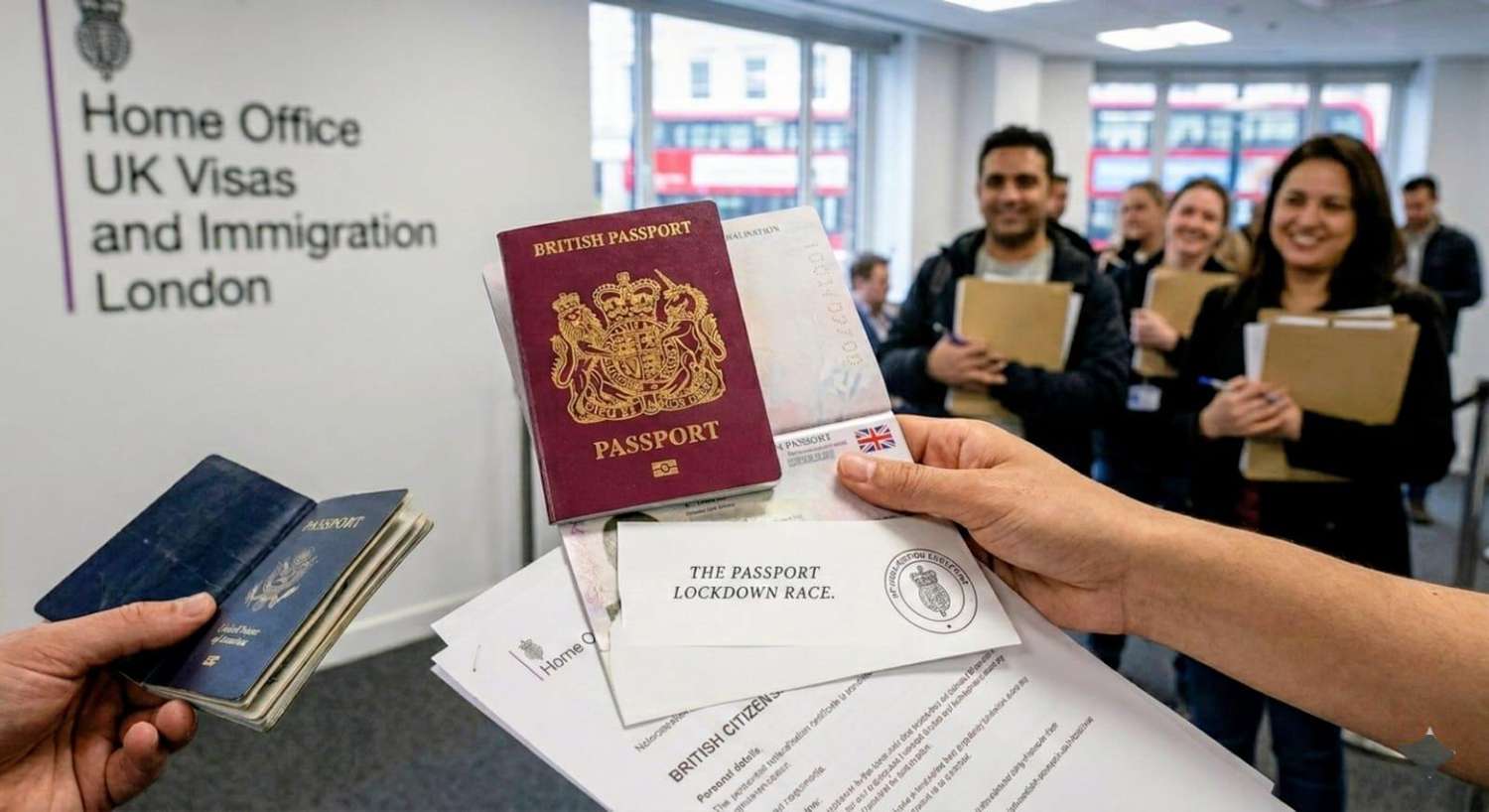Expanding a program that presently provides documents to members of the immediate family of military service personnel, the Biden administration will permit certain undocumented immigrants married to citizens of the United States to remain in the nation and work lawfully.
The announcement on Tuesday morning coincides with President Biden's commemoration of the Deferred Action for Childhood Arrivals (DACA) program's 12-year anniversary at the White House later in the day, along with leaders from the Latino and immigrant advocacy communities.
Weeks before, the government implemented a crackdown on asylum seekers at the border between the United States and Mexico, which infuriated the very organizations that Biden's decision is intended to appease.
Neither measure came as a surprise: For months, immigration advocates had been dreading the border security initiative and eagerly awaiting the relief measure.
“The announcement to be made by the Biden administration today is the most significant positive immigration policy change in the last 12 years,” said Rep. Jesús “Chuy” García (D-Ill.), one of Congress’s most active pro-immigrant advocates.
“One child out of every ten in Illinois has an undocumented parent. These moms and dads have built lives in our country and have contributed to the economy, but live in constant fear of deportation.”
The expansion of parole in place, as the regularization program is known, will be paired with measures to make the work visa application easier for immigrants living in the country illegally — particularly DACA beneficiaries — who have graduated from U.S. colleges.
Beneficiaries won’t receive new privileges, but existing paths to regularize their migratory status will be streamlined under the new rules.
For spouses of U.S. citizens, college graduates without legal status and holders of so-called “liminal” statuses such as DACA, the process to straighten out their papers currently involves risky trips abroad that can result in years-long or permanent separations from their families and communities in the United States.
“The purpose of this process is to facilitate the adjustment of status process domestically, to avoid people having to travel abroad and be separated from their family if they are otherwise eligible to adjust,” an administration official told reporters Monday.
The parole in place measure will allow immigrants who are married to U.S. citizens or who are the adoptive children of U.S. citizens to apply for a case-by-case assessment of their parole request.
Without the parole, applicants who did decide to leave the country to apply for permanent residency from abroad could be subject to mandatory three- or 10-year waits, on top of an already uncertain resolution.
To be eligible, prospective parolees must have been in the United States for 10 years as of Monday.
Approved applicants will be given three years to apply for permanent residency and meanwhile will receive a three-year work permit and deferral from deportation.
The administration and advocates estimate that about half a million noncitizen spouses will be eligible, as will about 50,000 noncitizen children.
There are currently an estimated 1 million immigrants without legal status who are part of mixed-status families in the United States, but about half of them have more difficult cases that can make them ineligible to apply for permanent residency.
Immigration law poses different bureaucratic barriers to foreign nationals, depending on factors such as the number of illegal entries, whether they’ve overstayed a visa and how long they have been in the country illegally.
Depending on individual cases, many of those people will be ineligible for the new program, as will other longtime immigrants in the county illegally who are not married to U.S. citizens.
“Providing relief and peace of mind to mixed-status families, and to the 45,000 DACA recipients in my state, is a step in the right direction to make our immigration system more fair and just. Still, many of my constituents won’t benefit from today’s announcement, and I will continue to push for work permits for our long-term immigrants who have waited for relief for decades,” García said,
Biden’s action targeted at Dreamers will also benefit a subset of that population, granting qualifying college graduates certainty that they will receive a necessary waiver if they apply for a work visa.
Most foreign nationals can apply for work visas if they have a job offer in the United States and fulfill requirements such as a four-year college degree.
Applicants without legal status can also apply using that process, but they must be granted a waiver by consular officers reviewing their visa applications — a risky prospect since that consular review needs to happen while the applicant is abroad.
By removing some of that risk, the application process should become more palatable for eligible immigrants who would otherwise avoid leaving the United States for fear of being unable to return.
“The idea is just to reflect that we recognize that there is a national interest element to making sure that people who have been educated in the United States are able to put their education and skills to use for the benefit of our country,” an administration official told reporters.
The measure is also galvanizing immigrant advocates who fear the new streamlined processes would be done away with in a potential second Trump administration.
They are giving full-throated support to the measure, sending a message both to Biden and to immigration restrictionists that they expect it to receive substantial political support.
While the asylum crackdown generally polled well, it was panned from the right as too little too late — and improbably, as a form of amnesty — and from the left as a humanitarian and legal non-starter.
Pro-Trump super PAC MAGA Inc. also panned the new plan Monday as an “amnesty.”
But the relief measure means national Latino and immigrant leaders are all but certain to give Biden the sort of enthusiastic political praise that’s so far eluded him.
“We should all be saying that with our chest, because this is not the fight the anti-immigrant groups want to have. I think this is really great policy and great politics,” said Todd Schulte, president of FWD.us, an immigration reform advocacy organization.
And pro-immigrant advocacy groups are already sharpening their political knives, keen to show Biden they will take the fight to Republicans.
“An overwhelming majority of Americans agree that humane solutions for Dreamers and spouses of U.S. citizens are good for the economy and good for families. It would be absurd for Republicans to demonize something that benefited two of President Trump’s wives,” said Rebecca Shi, executive director of the American Business Immigration Coalition.








.svg)



